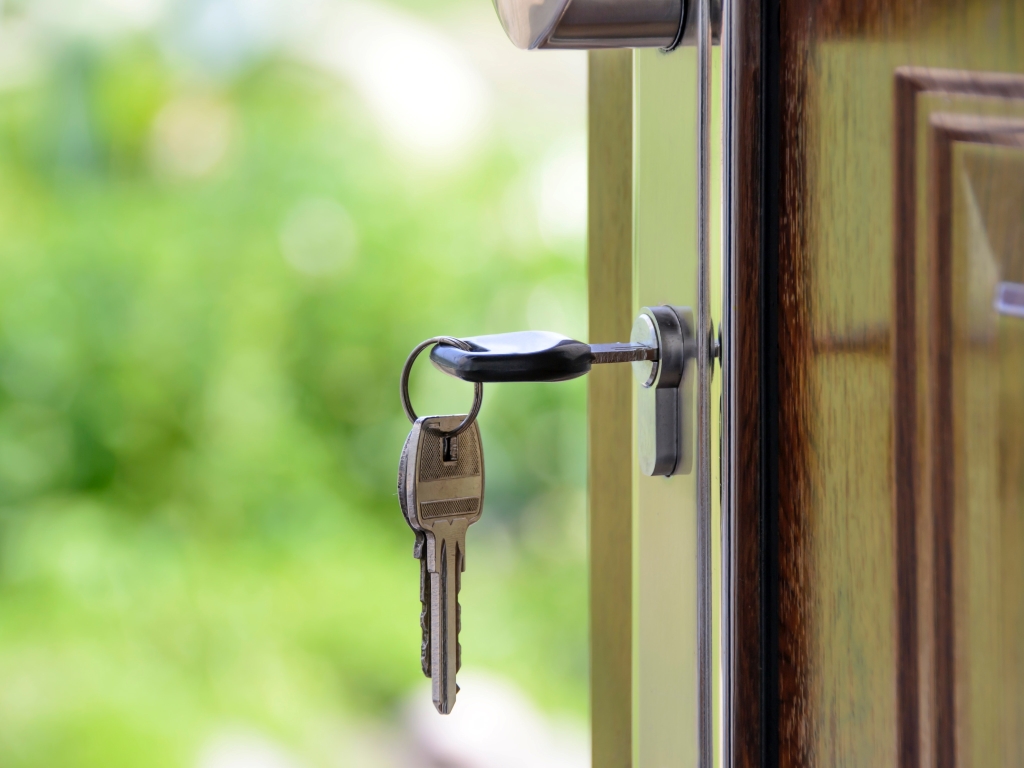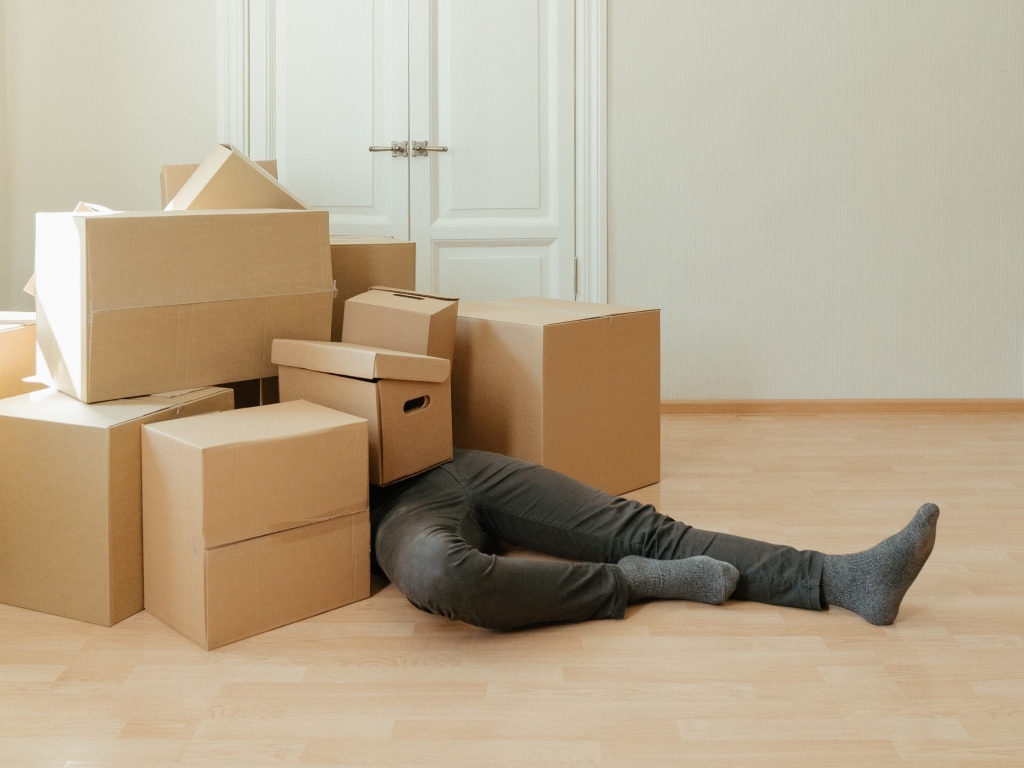December 8, 2022
On this checklist before moving we will deal with the documents and practical considerations that should be in place before moving out of the country. Of course, moving out involves more than just practical procedures, and the emotional toll should not be disregarded; I wrote about it in the dreadful farewell. This section, though, could be called the happy farewell – good to get rid of all the contracts, right? Let’s try not to forget any, and you may have even more than listed here.
If I forgot some, or many itens that belong to a checklist before moving out of the country, please let me know in the comments. The ones I dealt with or can think of are listed below:
Table of Contents
House
– Rent: check how long before you need to inform to cancel the contract. Make sure you inform in time. You may also need to inform the community administrator, as there may be some special considerations about noise and use of corridors (for apartments) on the day of the moving itself.
– Private property: if you own your own property, will you sell it? Will you rent it? You may give a power of attorney to someone that is really close to you and willing to help – mothers and siblings come to mind. You can specify in this power of attorney what powers you are sharing – like dealing with the rental or sale of a specific property, as you won’t be available. You can also consider hiring a real state agency to deal with the property on your behalf.

Utilities
– Water, power, gas, communal fees: contact each of these suppliers and inform when you are leaving so that you will not be responsible for any payments after your moving date, if you lived on rented property. If the property is yours, you continue to be responsible for these bills until it is rented or sold.
– Phone: phone is a one-of-a-kind thing. You may want to keep your current line working until after the move, when you can get a new, local phone number. Check with you operator if you can book ahead a date for the end of the services, so that you don’t have to contact them from abroad.
– Electric appliances: will your appliances work properly in Spain? The standard voltage in Spain is 220V, the frequency is 50Hz and the power plug sockets are of type F. If you need extra help verifyng, check our post about power. You may have to sell some of your goods, and it is better to know exactly what will move before the moving company comes to do their price estimate.
Cars
– Car: it is usually a bad idea to move a car from a country to another. There may be different regulations which will require pieces of the car to be changed locally; maintenance may also be complicated because of the differences in components. Ideally, I believe it is best to sell the car and buy a new one in Spain.
I’ve read a story about a guy that brough his car form abroad, but the glasses of the lanterns of his car were white, while in Spain they are orange (or vice-versa). He couldn’t change it because the shape was slightly different, therefore he couldn’t get his car permit in Spain and could not legally use it in the country, nor sell it (who would want to buy a car that can’t be used?). You see, too risky.
– Car insurance: contact the insurance company and inform of the sale of the car or, if you decide to keep it, inform of your moving. Car insurance is mandatory in Spain, but maybe your insurance company is not recognized in Spain, so this must be checked. When we terminated our contract with the insurance company in the US we got some money back for the extra insurance time that had been paid, so check if there is some refund too.

Banks
– Bank: will you keep your bank account while living abroad? It tends to be a good idea, and quite important if you receive pension or rent in this account. The decision should be based on practical uses: will you still need this account? Do they charge you to keep it open? If you close the account and later change your mind, you may have to go in person to open a new one, in the best-case scenario; worst case, they refuse to open accounts to non-residents.
Check with your bank how they work, as they are probably following national regulations, which will apply to any bank in your country. If you decide to close the account, wait until you have a new account in Spain. In this case, check with the bank how should you proceed to close a bank account from abroad.
– Wise: consider opening a Wise account if you don’t have one yet. This is particularly helpful if your savings are in a currency other than the euro. It is easy to transfer money to Wise, and the currency exchange happens immediately after request; plus they charge way less than banks to make an exchange. They also provide a card, so this can be very useful while you don’t have a bank account in Spain. You can read about our own positive experiences with Wise and about banks in Spain.
– Credit and debit cards: similar to banks, cards should be kept at least until you have a new one in Spain. Cards tend to charge extra for spending abroad (check if it applies to you) and even more if it is in a foreign currency. For this reason, using a foreign card is probably not a good idea; use it while you don’t have a local one – or get a card from wise – and then keep it only if it is needed to operate your account in your country of origin.
It is worth checking with your card operator if there are fees to use the card in Spain and how to proceed if you decide to end the contract while abroad. For our family, the card operator in the USA was not the bank itself, but it was easy to close both bank account and card through the phone. In Estonia I stopped using the card and let it expire, because there were no charges associated with keeping the card, and I left the account open for a while longer as the card was not needed to operate it.
– Automatic debt: since you are talking with the bank, check also what payments are there on automatic debt. This may remind you to close another contract, such as a magazine subscription or contracts that are paid just once a year. If you will not receive income on this account, ideally there should be no automatic debts there either; otherwise, plan and leave sufficient funds on the account.
Health
– Medical and dental: bring your medical records, particularly if you are undergoing treatment or have a long term health condition that will require a continuous observation. You can ask your healthcare provider for your personal information, and your new healthcare team will probably find your records useful.
School
– School records: if you are moving with kids, check with the Spanish Consulate that covers your area what is required for your kids school records to be valid in Spain. If you have already chosen their school in Spain, contact the school and ask directly as well (better through e-mail, so you have their answer in written). Requirements may vary depending if you are coming from the EU or not.
I would expect something like documents emitted by the school, signed by a notary that works in the school / by the school director and an apostille (this is a standard international document that one country makes to guarantee to other countries that the original document was legit). In my case, the school director in the USA didn’t understand the request, and gave us just a simplified version of the school records, which wouldn’t be good enough for the apostille.
To make matters worse, I forgot to bring those in the luggage. I was lucky that the private school in Spain did not ask for any previous school documents. This may have happened because kiddo was only 7 years old, so he couldn’t be placed much lower than second grade anyway, but I’ve had work colleagues with high school aged children face problems for lack of compliance with this requirement.

Amazon
– Amazon Prime: if you subscribe to Amazon prime and decide you still want to be a Prime in Spain, notice that you should open a new one in Spain at amazon.es. They don’t transfer the Prime to another country, unfortunately.
Amazon has a branch in Spain (which means they always deliver and do it fast; way faster than in Estonia, where we had to order from either Amazon Germany, Spain or US and check if they would deliver there). You may choose to keep ordering from you current Amazon, but not everything will accept to deliver abroad and even when they do, import fees may apply. You can wait to close your prime membership when you are already in Spain, though.
Consular
– Power of attorney: you may consider leaving a power of attorney to someone you trust, so that this person can handle situations that regard you when you are abroad. A power of attorney can be specific, in which you give powers just to do one operation or one kind of operation – like allowing someone to sign the documents regarding a car or apartment sale on your behalf – or broad, in which a very trusted person (mother comes to mind) can deal with everything, including banks and government institutions on your behalf.
You are responsible for the text of the power of attorney and there are many examples available on Google. You should not feel compelled to give more powers than you must. Be careful, especially when it involves money. As long as the text is thought through carefully, and your representative is reliable, a power of attorney can be a useful tool for someone that lives abroad.
– Consulate: find the consulate of your country that will be nearer to you in Spain and check their webpage. At some point you will need to renew your passport there; you should know if you can also renew your ID card and what other documents and services they offer, as well as what they require – appointments? Payment? More documents than you have prepared to take to Spain with you? Prepare these too. Consulates can do power of attorneys, by the way.
Documents
– Declaration of leave: each country works differently, but most of them require that their citizens fill a declaration of leave when moving abroad. This is pretty much just a document that informs the country that you are no longer a resident. The implication of this declaration usually is that you no longer have to pay annual income taxes there – beautiful, right? If you don’t fill it, you will still need to declare and pay every year. Watch out if there is any other consequence of the declaration, like becoming unable to have a bank account in the country – a big problem if you need to keep one.
The institution in charge of tax collection in your country will be able to inform about this declaration. USA citizens, though, need to pay income taxes to the USA regardless of where they live, besides having to pay to the country where they do live. If this is your case, check the agreement between Spain and the USA to avoid double taxation. Similarly, if you don’t want to give up your original residency, you may opt out of this declaration (if your country so allows), and keep paying income taxes on both.
Luckily, Spain has agreements to avoid double taxation with several countries, so this may be viable. It can get complicated, as you would have to fill two income declarations yearly, pay the first and ask for discount from what was paid from the second. If you want to proceed this way, I’d recommend checking with an accountant how it is done and what are the full implications of this option.
– Other documents: make sure your documents are not about to expire, and if they are, renew them. Passport, driver’s license and ID cards are prone to expire, and it will be harder to renew them in Spain than before leaving. Check the documents of your family members too.
Easy, right? Not really. But having a checklist before moving at hand is already something, and going through it was not as hard as it seems at first glance. Many of the items are just a matter of making a phone call or internet search, and you can (and should) allow yourself some time to tackle this task. Spread the items of the checklist before moving along your last month or two (or three), set closing dates in advance and it should all work out well. And them get ready to do the reverse and open everything again in Spain very soon!!!!
Next: Buying vs renting before moving – pros and cons
| This page contains affiliate links. This means you’ll be helping keeping this site up if you click on the links or use the services they provide, at no extra cost to you. Check our Affiliate Disclaimer here. |






